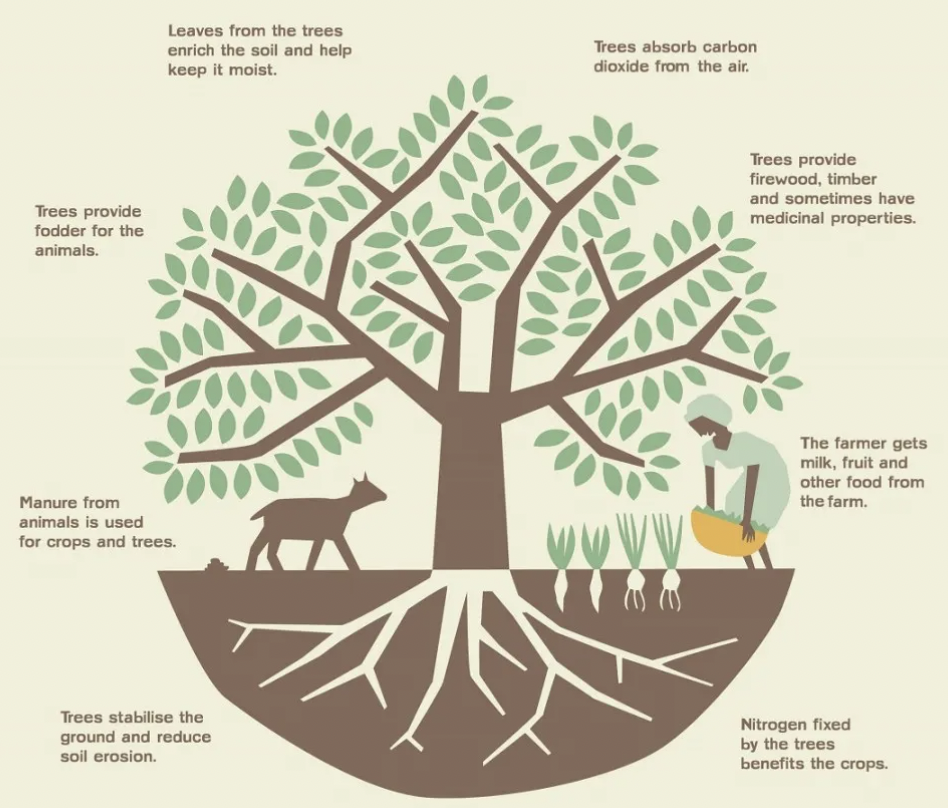Far from straightforward, one of the main goals of the 2022 Producer Crossover is to gather a common understanding of this concept.
When you research agroforestry, you realise that you can see it in two ways. The simplest definition is "agriculture involving trees". This would qualify every coffee farm as agroforestry. However, the term is usually used and has been coined and spread via World Agroforestry (ICRAF) since the 70's to entail something bigger, which I will try to grasp in my own words.
First of all, there is nothing new about agroforestry. Integrating trees into farms has been agricultural practice for millennia, especially by those still in close touch with the wild places on Earth. In mainstream ecology and conservationism too, it is a given that trees are important for natural systems beyond what most of us can imagine. In essence, agroforestry means using trees to provide benefits to a farm. These benefits are so numerous that they deserve another post, but the main themes are soil quality, water preservation, shade, climatic stability, income diversification and biodiversity.
Second, agroforestry entails simultaneous benefit for many "stakeholders" of a piece of land: humans, annual crops, wildlife, other trees and livestock. It's only recently that humans have the technological means to exploit land to meet the needs of only one of the above, but we are slowly realising that if we don't listen to what the land itself needs, not even one of these stakeholders can be satisfied in the long run. So why not establish systems that meet the needs of the soil, the trees, the whole ecosystem - to create healthy crops and communities in their wake? It's not a pipe dream, it's just how nature works if you respect it.
Images always work better to explain a complex concept… Source: Forestrypedia.com
And why add the word "regenerative"? Of course, this pertains to regenerating the life in soils and creating more biomass - but this is embodied in the term agroforestry, right? In essence, yes. For that matter, other important terms like permaculture and agro-ecology all have the regeneration of soils in their core - "regenerative agriculture" in my view is just a new way of promoting the same core principles of growing food with respect for the principles of the natural world. What is different about this generation's version is two things.
First, urgency. Our destructive agricultural ways have come so far that we have to drastically increase biomass and soil health to store the excess carbon our species is emitting. Let me stress this: agroforestry has the potential not only to curb current agriculture's CO2 output but even absorb CO2 from other human activities.
Second, scale. Compared to the romantic food forests and permaculture projects of the last decades, the regenerative movement (including syntropic agriculture) is applied to larger projects and adopted by more mainstream agricultural organisations, funds and governments. You are now starting to see acres upon acres with neat alternating rows of trees and annual crops providing benefits to each other, and at the same time easily accessible to tractors and combine harvesters.
So in my view, "regenerative" is the 21st century take on agroforestry that shows a professional and scaleable, yet equally activistic mentality. With this combination, we have a very serious shot to make a stand against the old world: those who willingly create deforestation, erosion, desertification, chemical and fertiliser pollution and ultimately our civilisation's decline.
Large scale agroforestry project in Brazil.
So what does this have to do with coffee? Our industry is definitely not in the same ballpark as the dystopian GMO corn fields and cattle ranches of the American Midwest... Yet most coffee farms, wether they are the monocultures of Brazil or the few-acre smallholder plots in the rest of the world work under a similar paradigm: "how can we extract the most from this land?" Farmers are not to blame for this, it is simply the only way to make coffee farming a viable option in today's system that benefits only the powerful. But what if we make the subtle but enormous shift to: "how can we understand and meet the land's needs so its health brings us abundance?"
Under this mindset, many new questions arise... But in a world of underpaid coffee farmers, political instability, but also incredible ease and speed of communication and dissemination of knowledge, all of us, growers, importers, roasters alike, should give this a serious shot. Can you imagine that all our coffee comes from farms that understand and communicate passionately about how they nurture their soils, earn benefits from being carbon negative, produce most of their own food or sell different crops than just coffee, communicate directly with their customers and forget that the C-market even exists? We can...


